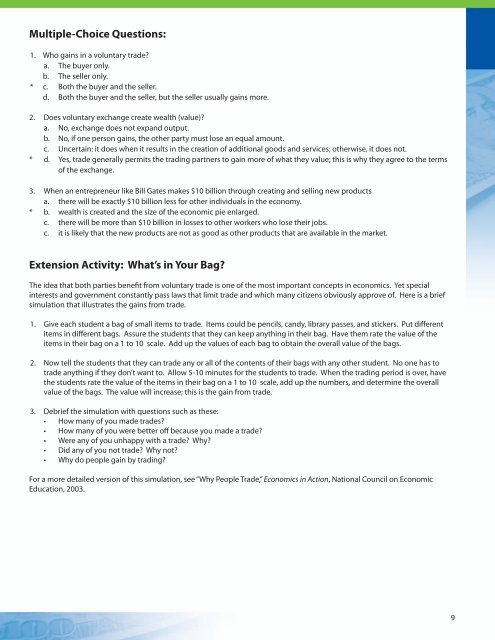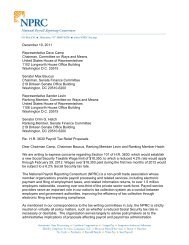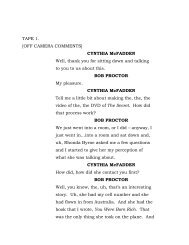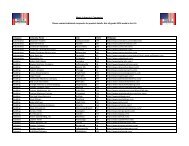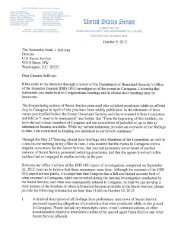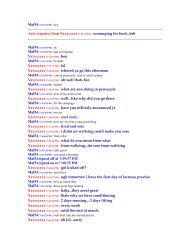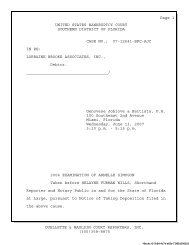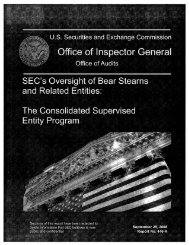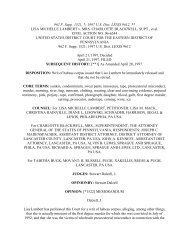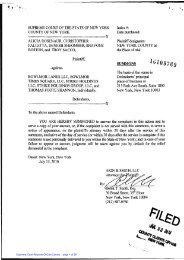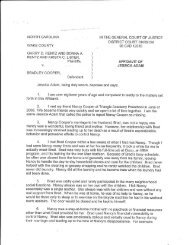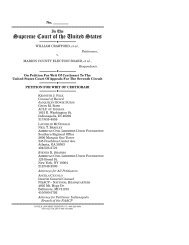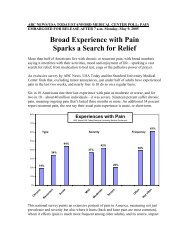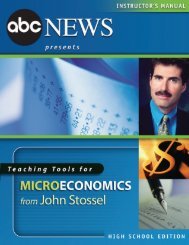to download the Microeconomics teachers guide - ABC News
to download the Microeconomics teachers guide - ABC News
to download the Microeconomics teachers guide - ABC News
Create successful ePaper yourself
Turn your PDF publications into a flip-book with our unique Google optimized e-Paper software.
Multiple-Choice Questions:<br />
1. Who gains in a voluntary trade?<br />
a. The buyer only.<br />
b. The seller only.<br />
* c. Both <strong>the</strong> buyer and <strong>the</strong> seller.<br />
d. Both <strong>the</strong> buyer and <strong>the</strong> seller, but <strong>the</strong> seller usually gains more.<br />
2. Does voluntary exchange create wealth (value)?<br />
a. No, exchange does not expand output.<br />
b. No, if one person gains, <strong>the</strong> o<strong>the</strong>r party must lose an equal amount.<br />
c. Uncertain: it does when it results in <strong>the</strong> creation of additional goods and services; o<strong>the</strong>rwise, it does not.<br />
* d. Yes, trade generally permits <strong>the</strong> trading partners <strong>to</strong> gain more of what <strong>the</strong>y value; this is why <strong>the</strong>y agree <strong>to</strong> <strong>the</strong> terms<br />
of <strong>the</strong> exchange.<br />
3. When an entrepreneur like Bill Gates makes $10 billion through creating and selling new products<br />
a. <strong>the</strong>re will be exactly $10 billion less for o<strong>the</strong>r individuals in <strong>the</strong> economy.<br />
* b. wealth is created and <strong>the</strong> size of <strong>the</strong> economic pie enlarged.<br />
c. <strong>the</strong>re will be more than $10 billion in losses <strong>to</strong> o<strong>the</strong>r workers who lose <strong>the</strong>ir jobs.<br />
c. it is likely that <strong>the</strong> new products are not as good as o<strong>the</strong>r products that are available in <strong>the</strong> market.<br />
Extension Activity: What’s in Your Bag?<br />
The idea that both parties benefit from voluntary trade is one of <strong>the</strong> most important concepts in economics. Yet special<br />
interests and government constantly pass laws that limit trade and which many citizens obviously approve of. Here is a brief<br />
simulation that illustrates <strong>the</strong> gains from trade.<br />
1. Give each student a bag of small items <strong>to</strong> trade. Items could be pencils, candy, library passes, and stickers. Put different<br />
items in different bags. Assure <strong>the</strong> students that <strong>the</strong>y can keep anything in <strong>the</strong>ir bag. Have <strong>the</strong>m rate <strong>the</strong> value of <strong>the</strong><br />
items in <strong>the</strong>ir bag on a 1 <strong>to</strong> 10 scale. Add up <strong>the</strong> values of each bag <strong>to</strong> obtain <strong>the</strong> overall value of <strong>the</strong> bags.<br />
2. Now tell <strong>the</strong> students that <strong>the</strong>y can trade any or all of <strong>the</strong> contents of <strong>the</strong>ir bags with any o<strong>the</strong>r student. No one has <strong>to</strong><br />
trade anything if <strong>the</strong>y don’t want <strong>to</strong>. Allow 5-10 minutes for <strong>the</strong> students <strong>to</strong> trade. When <strong>the</strong> trading period is over, have<br />
<strong>the</strong> students rate <strong>the</strong> value of <strong>the</strong> items in <strong>the</strong>ir bag on a 1 <strong>to</strong> 10 scale, add up <strong>the</strong> numbers, and determine <strong>the</strong> overall<br />
value of <strong>the</strong> bags. The value will increase; this is <strong>the</strong> gain from trade.<br />
3. Debrief <strong>the</strong> simulation with questions such as <strong>the</strong>se:<br />
• How many of you made trades?<br />
• How many of you were better off because you made a trade?<br />
• Were any of you unhappy with a trade? Why?<br />
• Did any of you not trade? Why not?<br />
• Why do people gain by trading?<br />
For a more detailed version of this simulation, see “Why People Trade,” Economics in Action, National Council on Economic<br />
Education, 2003.<br />
9


